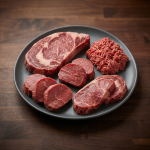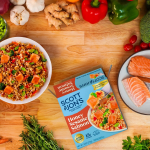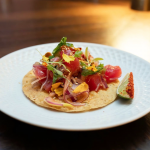Caulipower Launches Pasta, Plans for Further Expansion
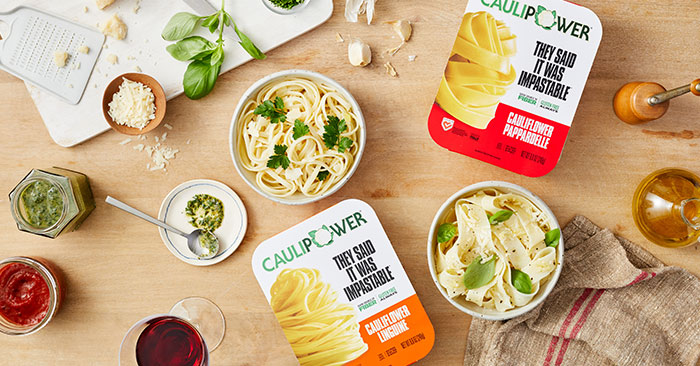
After leaving its imprint in the pizza category, Caulipower is looking to grab cauliflower-curious consumers of another favorite food type: pasta.
It’s the first salvo in what the company’s CEO said will be a year of innovation.
Available in Linguine and Pappardelle, each pack of frozen pasta will retail for $5.99. Made in Italy and imported, the pasta is sold in Fresh Thyme and Jewel to start, with HyVee, Gelson’s, Walmart and Kroger coming online in the weeks to come. In addition to its cauliflower base, Caulipower founder and CEO Gail Becker said the pasta is differentiated from other gluten-free, legume or vegetable-based pastas because of its nutritional makeup. Per serving, the pasta has roughly 100 calories less than most gluten-free or legume pasta options and five to ten grams less of net carbs.
The frozen pasta set has seen less innovation than the shelf-stable pasta set, but Becker said that’s in part because of the hurdles, such as education or brand awareness, that other brands would face in launching a frozen pasta. Caulipower largely sells products in the frozen aisle (its tortillas are shifting to also be sold refrigerated), Becker said, making the jump to pasta easier, with retailers agreeing to provide brand blocks in freezer doors.
“We wanted to build upon our success in frozen,” Becker said, “The category was ripe for innovation.”
Founded in 2017, Caulipower was one of the first movers in the cauliflower pizza set, commercializing a product that previously was largely made from scratch in a laborious process. Subsequent launches included cauliflower coated chicken tenders (which alone generated $13 million in sales last year), cauliflower rice, cauliflower tortillas and sliced sweet potato “toasts.”
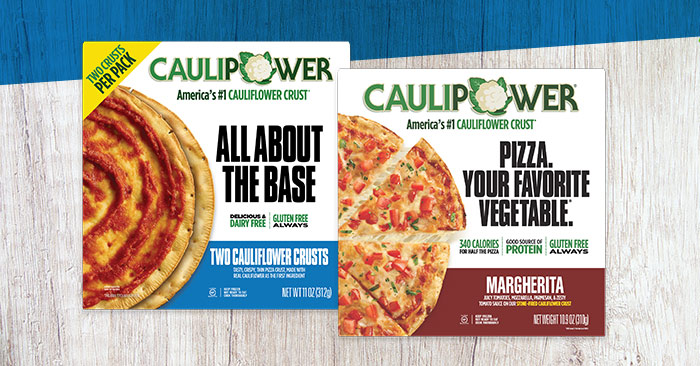
Becker acknowledges that since the company’s launch, the cauliflower pizza category has gotten more crowded. National brands — such as Cali’Flour, Newman’s Own, Real Good Foods, Outer Aisle and Green Giant — have all launched their own cauliflower-based pizzas and private label products soon followed. Other pizzas with unique bases have also debuted, including Banza’s chickpea flour crust, Cappello’s almond flour pizzas and Real Good Foods chicken crust and “superfoods” crusts. But Becker maintains that it’s not fear of the competition that’s driving the expansion in pasta. Rather, the goal was to prove out the caulipower concept and then enter new segments, rapidly.
“Diversification of our portfolio has always been our strategy. We knew from very early on that fans of the brand wanted more from us,” Becker said. “We had permission from our consumers and permission from our retail customers to go into other areas.”
Last year, Caulipower launched cauliflower “rice,” a category that has become crowded as Keto diets have grown. Becker said while she initially “resisted” launching a frozen riced vegetable, it was a popular request from consumers and retailers. She ultimately felt comfortable launching into the set by looking for points of differentiation such as improving texture and adding flavors like curry or sesame. The brand also eschews the multi-serve bags other brands utilize for packaging, instead selling single serve portions in microwavable cups in order to appear as more of a meal solution.
Unfortunately, Becker said, Caulipower launched the riced cauliflower cups in March 2020 — just as consumers began working at home. While the line did receive national pickup, she said the team expects there to be wider distribution in the second half of this year.
Becker and her team haven’t been shy about cutting underperforming lines in the past. The brand tried to launch a cauliflower baking mix line in 2018 before ultimately deciding to largely focus on the frozen aisle. Meanwhile, personal sized pizzas never made it to shelves: after debuting at Expo West 2019, the brand hit copacking issues and decided to hold off on the launch.
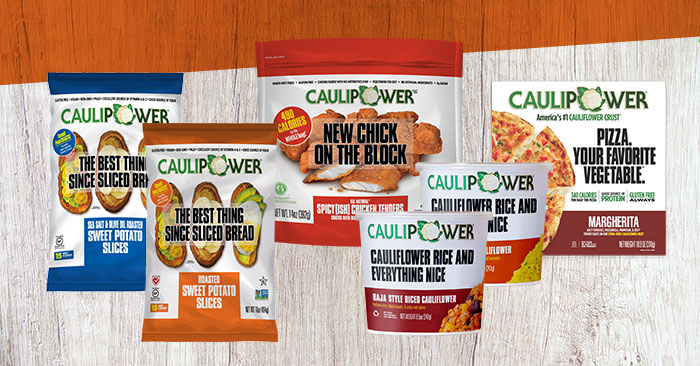
There’s also been evolution. Earlier this year the company adjusted its pizza packaging, adding more glamour shots of the pizza itself, cleaned up copy and a bigger logo. Becker and her team have also come to believe that the Caulipower brand is more malleable than originally understood. When the company debuted its sliced sweet potatoes (then called Sweet PotaToasts) it also announced the launch of Vegolutionary Foods as a new parent brand to hold all products using other vegetables. Later, the company changed the product name to Caulipower Sweet Potato Slices, however.
“Retailers and consumers said ‘no, we don’t want another brand. We want Caulipower. That’s what sells, that’s what people want to see in our freezer door,’” Becker said. “Caulipower is not just a company that makes things out of Cauliflower, Caulipower is a platform brand that does magical things with vegetables.”
Becker said more launches with other vegetables will roll out over the course of the year. The company invested heavily in R&D over 2020, believing that as other brands cut back innovation budgets to save cash during the pandemic, Caulipower could instead spend more and once again, get ahead of the crowd.
“Caulipower is not a brand that rests on its laurels,” Becker said. “The pasta is just the beginning, and what a beginning it is.”



